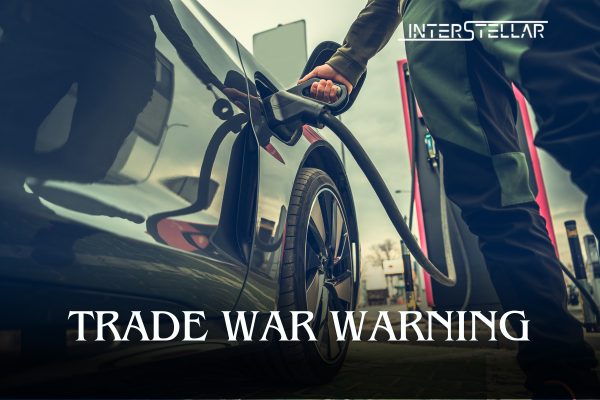China Warns of ‘Trade War’ Over EU Tariffs on Electric Vehicles
China’s commerce ministry warned on Friday that the European Union could trigger a ‘trade war’ if it continues to escalate tensions. The warning follows the EU’s decision to impose tariffs of up to 38.1% on Chinese electric vehicle (EV) imports, a move that has significantly strained trade relations.
EU Tariffs and China’s Response
Last week, the European Commission proposed these tariffs despite Beijing’s protests, heightening the risk of retaliatory action from China. A statement from the commerce ministry, published shortly before German Economy Minister Robert Habeck’s visit to Beijing, accused the EU of foul play during its eight-month anti-subsidy probe into Chinese EVs. “The European side continues to escalate trade frictions and could trigger a ‘trade war’,” the statement read, placing the responsibility entirely on the EU.
In response, Chinese automakers have called for increased tariffs on European gasoline-powered imported cars with large engines. German carmakers, heavily reliant on the Chinese market, would be particularly vulnerable to such measures. EU car exports to China were valued at 19.4 billion euros in 2023, while the bloc imported 9.7 billion euros worth of EVs from China.
Potential Retaliatory Measures
Jacob Gunter, lead analyst at MERICS, a Berlin-based China studies institute, suggested that Beijing might raise tariffs on Europe-made cars with 2.5 litre engines or larger by up to 25%. Such a move would not only demonstrate China’s retaliatory stance but also pressure German automakers to lobby against the EU tariffs.
Accusations of Unfair Play
China rejects accusations that its firms benefit from unfair subsidies or that it has an overcapacity problem. It attributes its rise in the global EV industry to innovation and comprehensive supply chains. Zhang Yansheng, chief research fellow at the China Center for International Economic Exchanges, criticised the EU’s investigation as unfair, suggesting it was influenced by geopolitical concerns rather than purely economic ones.
In its statement, the commerce ministry accused Brussels of misusing the “countervailing duties investigation tool” and failing to comply with World Trade Organization rules. It also claimed the EU “intimidated and coerced” Chinese firms to provide excessive information.
Broader Trade Tensions
In retaliation, Beijing has launched an anti-dumping investigation into EU pork imports, prompted by a complaint from the China Animal Husbandry Association. The commerce ministry’s spokesperson, He Yadong, accused the European Commission of demanding unprecedented amounts of information from Chinese automakers, suggesting that the EU might be seeking to spy on China’s EV industry.
The escalating trade tensions between China and the EU reflect deeper geopolitical and economic conflicts, with significant implications for global trade and industry dynamics.





